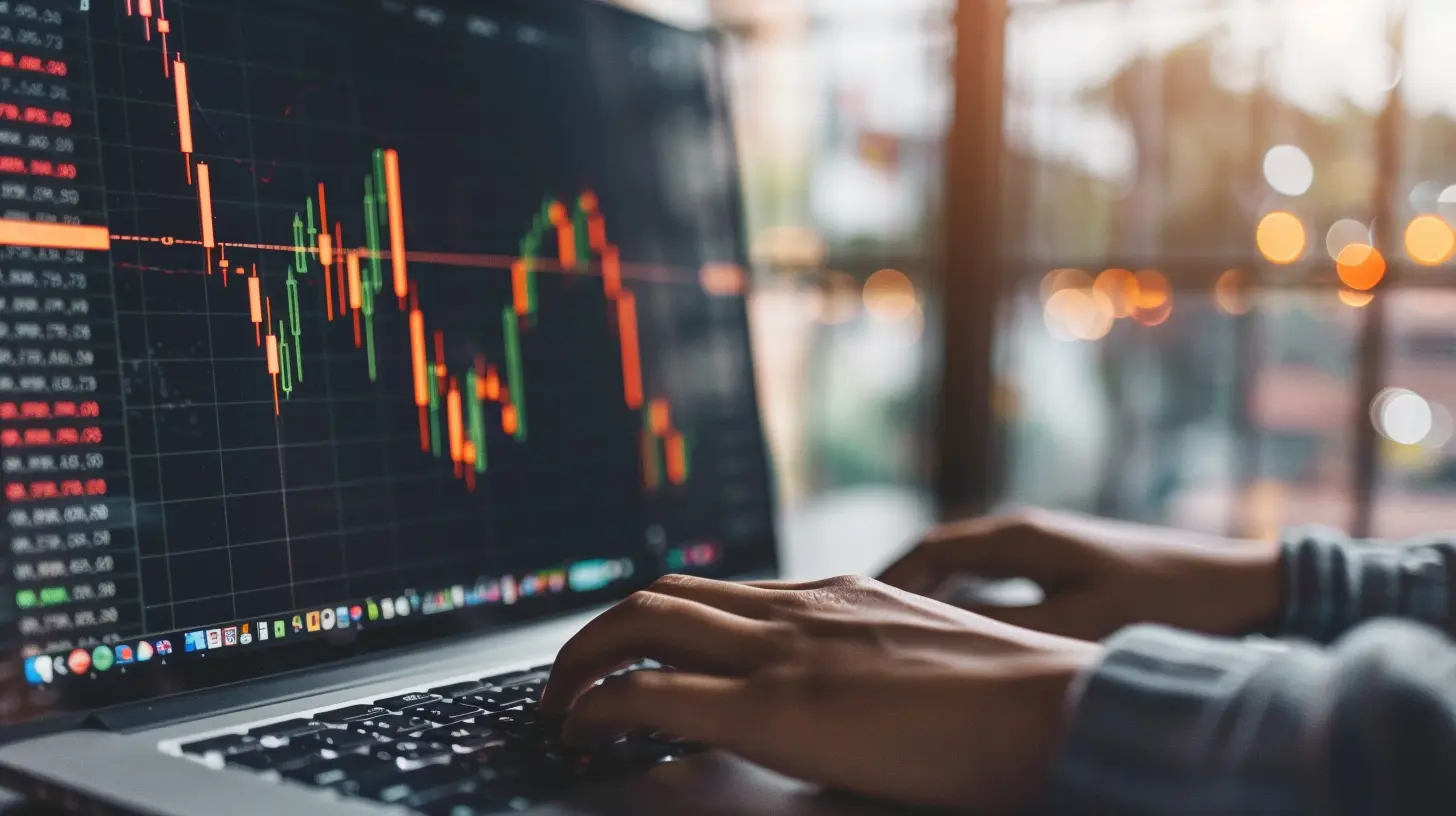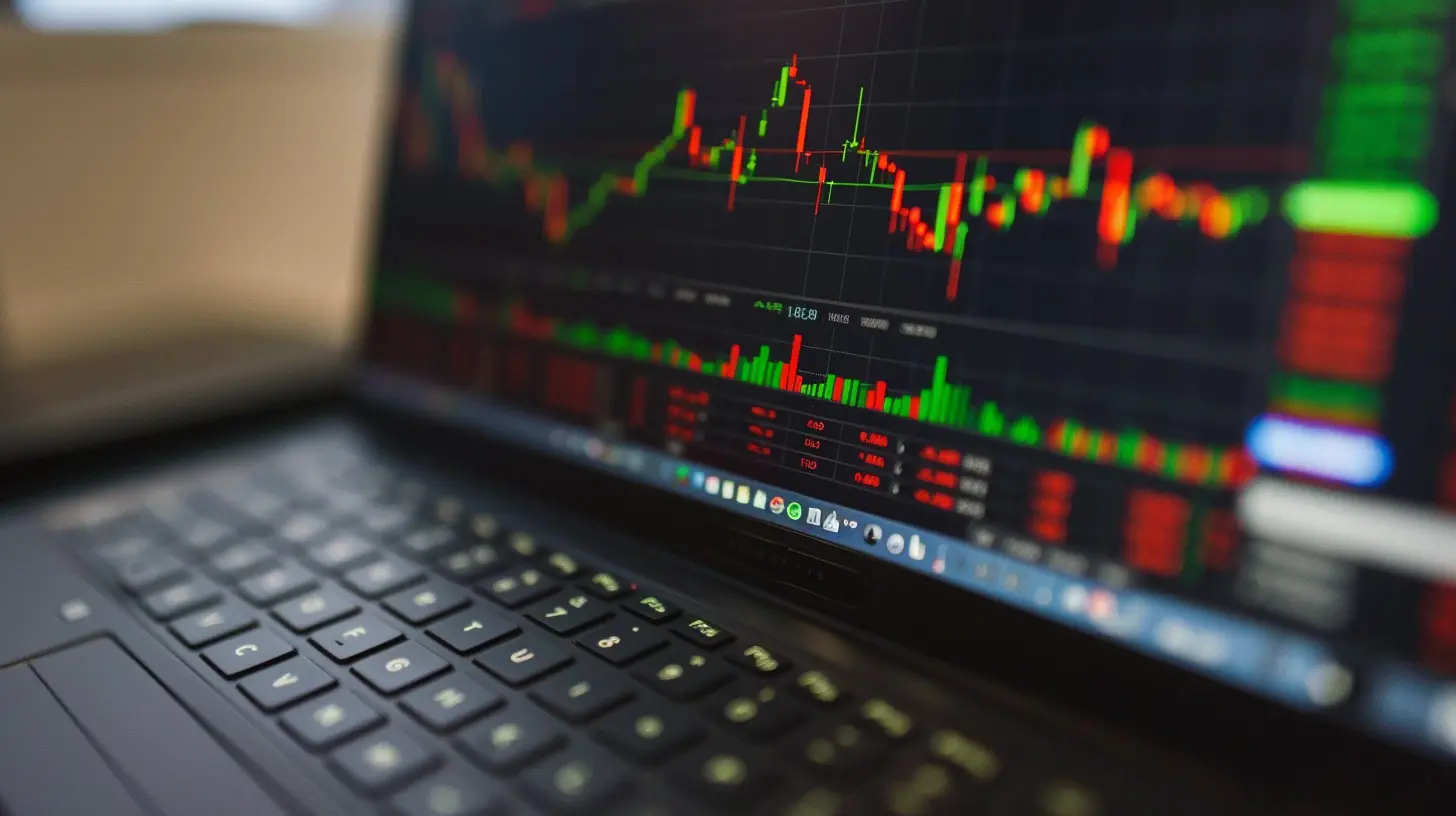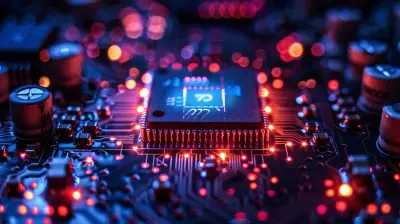The Best Laptops for Stock Trading: Speed, Connectivity, and More
12 June 2025
In the fast-paced world of stock trading, milliseconds can make a difference. Whether you're a seasoned trader or just starting out, having the right laptop can be a game-changer. You need more than just a basic device; you need a powerful machine that can keep up with the demands of the stock market — speed, connectivity, and reliability are key.
But with so many laptops out there, how do you know which one is the best for your trading needs? Well, in this guide, we’re going to break down exactly what you should be looking for and highlight some of the best laptops for stock trading. Ready to dive in? Let’s go!

Why a Proper Laptop Is Essential for Stock Trading
Before we get into the specifics of what makes a laptop perfect for stock trading, let's talk about why it's so important to choose the right one. When you're trading stocks, you're constantly monitoring live data feeds, charts, and platforms. The information is updated in real-time, and you need to react quickly to market changes. A slow or unreliable laptop can mean missed opportunities or, worse, financial losses.Imagine seeing a huge opportunity to buy or sell but your screen freezes or your laptop lags. Frustrating, right? That’s why powerful processors, fast storage, and strong connectivity are critical. Whether you're trading from home, a café, or on the go, you need a laptop that can handle it all.

What Makes a Laptop Ideal for Stock Trading?
Not all laptops are created equal, and there are specific features you should prioritize when choosing a laptop for stock trading. Let’s break them down:1. Processing Power (CPU)
Stock trading software and platforms like ThinkorSwim, MetaTrader, or TradingView can be resource-intensive. Your laptop's processor (CPU) needs to be fast enough to handle multiple tasks at once — think of it as the brain of your laptop.Look for a laptop with at least an Intel Core i5 or Ryzen 5 processor. If you can stretch your budget, an Intel Core i7 or Ryzen 7 is even better. These processors can handle heavy multitasking and will ensure you don’t experience any lag when switching between multiple tabs, charts, and trading platforms.
2. Memory (RAM)
RAM is like your laptop’s short-term memory. The more RAM you have, the easier it is for your laptop to juggle multiple tasks at once without slowing down. For stock trading, you’ll want a minimum of 8GB of RAM. However, if you’re someone who has dozens of browser tabs open, runs multiple trading platforms, and analyzes charts simultaneously, 16GB of RAM will make a noticeable difference.3. Storage (SSD vs. HDD)
When it comes to storage, you have two options: SSD (Solid State Drive) or HDD (Hard Disk Drive). For stock trading, an SSD is a must. Why? Because SSDs are significantly faster than HDDs. They allow your laptop to boot up in seconds, launch applications almost instantly, and load data faster.A good starting point is 256GB of SSD storage, but if you work with a lot of heavy files, charts, or software, consider bumping up to 512GB or more.
4. Display Quality
If you’re staring at your screen for hours analyzing charts and trends, a high-quality display is crucial. Look for a laptop with at least a Full HD (1920 x 1080) resolution. This will ensure that your charts and graphs are crisp and clear.Also, consider the screen size. A 13-inch laptop may be portable, but it can feel cramped if you're working with multiple windows or charts. A 15-inch or larger display gives you more workspace and makes it easier to track your trades. Some traders even opt for external monitors for a multi-screen setup, but a larger laptop screen is a good compromise if you're on the go.
5. Connectivity (Wi-Fi and Ports)
In the trading world, lost connections can cost you money. You need a laptop with fast and reliable internet connectivity. Look for laptops that support Wi-Fi 6, the latest and fastest Wi-Fi standard. It offers better performance in crowded networks and ensures you have the fastest connection possible.In addition to Wi-Fi, you’ll want a laptop with multiple USB ports (preferably USB-C), HDMI, and other connectivity options. These will allow you to connect external monitors, keyboards, and other peripherals without any hassle.
6. Battery Life
If you’re someone who trades on the go, battery life is a big deal. Nothing's worse than your laptop dying right as you're about to make a crucial trade. Look for laptops that offer at least 8 hours of battery life. While you might not always get that exact number (depending on your usage), it’s a good baseline for a full day of trading without scrambling for the nearest outlet.7. Portability
Stock trading is often a mobile activity. You might be trading from home one day, a café the next, or even while traveling. A lightweight and portable laptop makes it easier to trade from anywhere. Look for laptops that weigh less than 4 pounds if you’re constantly on the move.8. Graphics Card (GPU)
Now, for most traders, a dedicated GPU (graphics card) isn’t a necessity. However, if you’re into high-frequency trading or run multiple monitors at once, a good GPU can ensure that your laptop doesn’t slow down. That said, integrated graphics on most modern laptops are more than capable for the average trader.
Best Laptops for Stock Trading in 2023
Now that you know what to look for, let’s dive into some of the best laptops for stock trading in 2023. We've considered all the factors mentioned above and selected laptops that offer the best performance for traders.1. Apple MacBook Pro (M1/M2)
The MacBook Pro is a favorite among traders, and for good reason. Apple’s new M1 and M2 chips offer incredible speed and efficiency. The MacBook Pro is known for its crystal-clear Retina display, excellent battery life (up to 20 hours), and lightweight design. The M1/M2 chip is powerful enough to handle any trading platform with ease, and with options for 16GB or even 32GB of RAM, multitasking is a breeze.Additionally, macOS is known for its stability, which means fewer crashes or freezes during crucial trading moments.
2. Dell XPS 15
The Dell XPS 15 is another top contender for stock traders. It comes with an Intel Core i7 processor, 16GB of RAM, and an SSD of up to 1TB. The 15.6-inch 4K display is absolutely gorgeous, making it perfect for analyzing charts and data. Plus, it’s lightweight and portable, making it easy to trade from virtually anywhere.With Wi-Fi 6 support and a range of ports (including USB-C and HDMI), the XPS 15 offers excellent connectivity for external monitors and fast internet access.
3. Asus ZenBook 14
If you’re looking for something more budget-friendly without sacrificing performance, the Asus ZenBook 14 is a solid choice. It features an Intel Core i7 processor, 16GB of RAM, and a 512GB SSD. The 14-inch Full HD display is sharp and clear, and the laptop itself is incredibly lightweight, weighing just 2.58 pounds.Despite its budget price, it still offers Wi-Fi 6 connectivity and a battery life of up to 12 hours, making it a great option for traders on the go.
4. Microsoft Surface Laptop 4
The Microsoft Surface Laptop 4 is sleek, powerful, and perfect for traders who want a lightweight yet capable machine. It comes with Intel Core i5 or i7 options, up to 16GB of RAM, and a speedy SSD. The 13.5-inch PixelSense display delivers vibrant colors and sharp details, making it easy to read charts and data.One of the standout features of the Surface Laptop 4 is its portability — it weighs just under 3 pounds and offers up to 15 hours of battery life, so you won’t have to worry about staying plugged in all day.
5. HP Spectre x360
The HP Spectre x360 is a versatile 2-in-1 laptop that combines performance with portability. It features an Intel Core i7 processor, 16GB of RAM, and a 512GB SSD. The 13.3- or 15.6-inch 4K OLED display is sharp and vibrant, perfect for traders who need a high-resolution screen for detailed analysis.The Spectre x360 also offers great battery life (up to 13 hours) and the flexibility of being able to switch between laptop and tablet modes, making it perfect for traders who like to use a stylus or touch interface for charting and note-taking.

Final Thoughts
Choosing the right laptop for stock trading is a critical decision that can affect your trading performance. You need a laptop that’s fast, reliable, and has great connectivity. Whether you’re a beginner or an experienced trader, the laptops we’ve mentioned above are all excellent choices. The key is to prioritize what matters most to you — be it portability, screen size, or raw processing power.Remember, the best laptop is one that fits your specific trading needs and lifestyle. So, pick wisely, and may your trades always be in the green!
all images in this post were generated using AI tools
Category:
Laptop ReviewsAuthor:

Reese McQuillan
Discussion
rate this article
2 comments
Carson Pacheco
Great insights! Speed and connectivity are crucial for traders.
June 19, 2025 at 2:46 AM

Reese McQuillan
Thank you! I'm glad you found the insights valuable—speed and connectivity are indeed vital for successful trading.
Abram McCarty
In the realm where profits dance and numbers soar, These laptops, swift and sleek, open every door. With speed and connectivity, dreams take flight, Empowering traders to chase the market's light.
June 15, 2025 at 4:29 AM

Reese McQuillan
Thank you! I'm glad you enjoyed the poem! It perfectly captures the essence of how the right laptop can enhance trading experiences.


